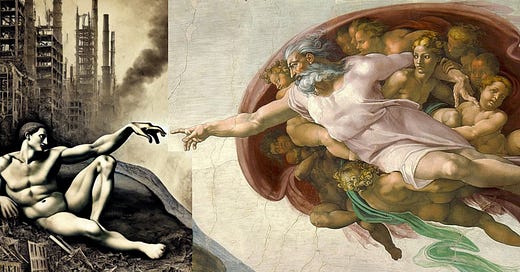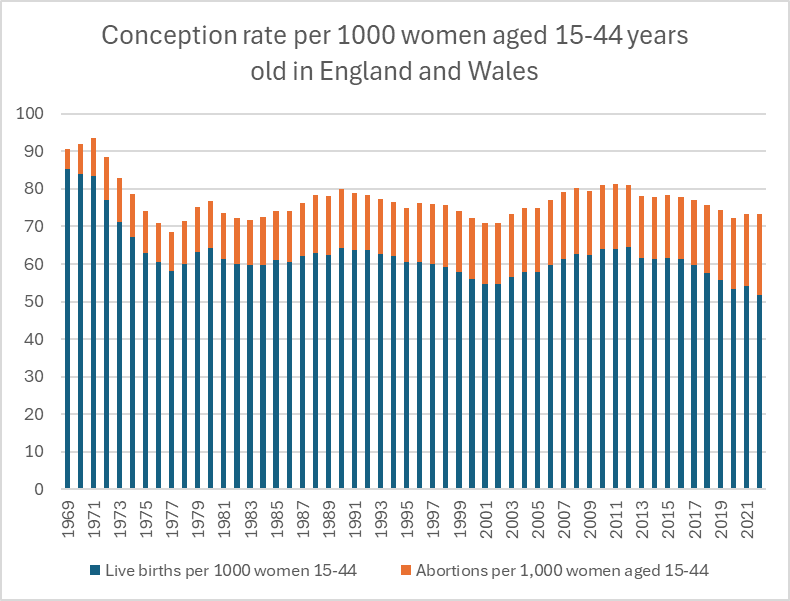The Baby Boomers are reaching the end of their lives. And with it, society has become obsessed with death. This is the generation that once shouted about freedom and revolution. Now, they seek control over their final breath. They demand “clean deaths” through assisted dying and euthanasia. Yet, death is never clean. Medicine cannot promise an easy end. Sometimes it fails. Sometimes it takes not hours but days.
This fear of death is the last chapter in a life spent reshaping the world. Many of their ideas seemed compassionate at first. They spoke of fairness, freedom, and choice. But those ideas often came with a cost. Boomers built a world of shifting truths, stripped beauty down to nothing, and told us life is only about ourselves. They rejected God at every step. Now, the society they leave behind is hollow, cut loose from purpose, drifting without meaning. Was it all the boomers fault or is there something darker that is causing these shifts?
Covid brought this fear into sharp focus. Their terror of mortality shut down the world. They demanded survival above all else, at any cost. But this response reduced life to its biological components—a heartbeat, a breath. It forgot that life is more than mere existence. It is meant to have purpose and meaning. By rejecting God, Boomers lost sight of that truth.
Boomers have been responsible for much good in society and I love individual boomers - but this essay is not about that. It is about how our society changed with them - something all members of society are responsible for.
A Compassionate Lie
Boomers championed the idea of relative truth, popularizing it in ways that reshaped society. At first, it sounded kind. It gave people space to express themselves and share their experiences. Why force everyone to see the world the same way?
But it didn’t take long for cracks to appear. Without shared truth, how can a society agree on what’s right or wrong? Morality became a matter of opinion. Ethics turned into personal preferences. And when truth became subjective, so did trust. We stopped believing each other. We stopped believing in anything.
This shift wasn’t limited to ideas—it changed the economy too. Boomers embraced the lie that individual pleasure is the purpose of life. They told us we could have everything we wanted right now. Credit cards, loans, and easy money seemed freeing at first. But this debt-based economy grew into a monster. Boomers enjoyed the benefits, while the tsunami of debt left younger generations drowning. Wealth became concentrated in their hands, locking others out of opportunity. What started as a liberating idea left behind division and inequality.
Figure 1: USA data on homeownership in pre-retirees by generation
When Boomers looked beyond themselves, they often championed ideals like equality and justice, but their approach was deeply contradictory. While some embraced Marxism or utilitarianism as solutions to society’s problems, most leaned toward free-market capitalism. They marched for social justice and fairness, but at the same time, they fueled consumerism and individualism. This created a cultural paradox: collectivist ideals clashing with personal ambition.
These contradictions left society torn. On one hand, they promoted fairness and unity; on the other, their pursuit of material success and personal freedom undermined those values. Without a God-centered purpose to unite their values, this tension deepened. Hedonistic individualism clashed with utopian collectivism, and both paths proved destructive—one fostering selfishness, the other unattainable ideals. What remained was a fragmented cultural landscape, where rhetoric and reality were often at odds.
A World Made Plain
Boomers also dismantled traditional concepts of beauty, replacing them with superficiality and rebellion, trying to celebrate the imperfect, the simple the abstract. Nowhere is this more evident than in their obsession with youth. Cosmetic surgery became a cultural norm under their influence, perpetuating the false promise that physical perfection can bring happiness. The lie that a knife can "fix" someone healthy epitomizes the rejection of natural beauty and aging as part of life’s spiritual journey.
This need to strip things down didn’t stop with themselves. They did it to buildings too. Architecture lost its soul. The grand cathedrals, carved with devotion, gave way to plain concrete boxes and glass towers. Interiors and cars became devoid of colour. Fashion followed, abandoning elegance for extremes that often resemble chaos. What once expressed grace and dignity now looks like rebellion or despair. Even logos followed this trend. Once, they were rich with detail and artistry, now, they’re flat and lifeless. Boomers said minimalism was practical and modern. But it was cold. Empty. It lacked heart. Boomers thought they were freeing beauty from tradition. Instead, they robbed it of meaning.
Figure 2: Changes to our surroundings credited largely to @culturaltutor
Freedom Without Responsibility
The boomers oversaw the liberalization of abortion laws, reframing life as a matter of personal choice. At first, this seemed compassionate. There were indeed heart-wrenching stories of women trapped in unhappy marriages or struggling after unwanted conceptions. Why shouldn’t people live however they want? These arguments felt fair. But they left society with a deeper, spiritual problem. They broke the link between sex and family, turning it from a sacred bond into a pursuit of pleasure. Contraception and abortion stripped sex of its spiritual meaning, reducing it to a matter of personal gratification. The idea of marriage as a covenant, serving something greater than personal fulfillment, was abandoned.
The truth is, the number of overall conceptions per fertile woman hasn’t changed much over time. We are still being gifted the same amount of life as a society as in past generations. What has changed is what we do with it. In the past, many unplanned pregnancies led to "shotgun weddings," hurried unions formed to provide stability for a child and honor the value of life. Today, similar pregnancies often lead to abortion. Marriage has become less common, and those who do marry face higher odds of divorce. This shift reflects a broader cultural move away from commitment and toward individual autonomy. But has it made us happier?
Figure 3: Total live births and abortions per year in England and Wales
The answer seems to be no. Fewer families are formed, and those that do form often lack stability. Rates of loneliness and depression are rising, as fewer people find the lifelong partnerships and support networks that marriage once provided. Abortion and single parenthood are often framed as empowering, but they can leave individuals grappling with emotional and financial struggles. What we’ve gained in freedom, we’ve lost in connection.
Modern society prizes autonomy and choice, yet it has left many people adrift, searching for meaning in fragmented lives. The stability and shared purpose that once defined families and communities have been replaced by uncertainty and isolation. By treating life as optional, we’ve disconnected from its divine source and deeper meaning. Families are shrinking, communities are aging, and nations are struggling to sustain themselves. Though we are still gifted the same amount of life as before, we increasingly choose to reject it. What we’ve gained in freedom, we’ve lost in connection, leaving a society hollow and unprepared for the future.
This isn’t a call for bans or simplistic solutions. It’s a call for reflection. Are we truly prepared for the long-term consequences of our current approach? Have we fully understood what it means to treat life as disposable? It’s time to take a serious look at the societal impact of this shift and ask what kind of future we want to create—for ourselves, for our communities, and for the generations to come.
Now, at the end of their lives, Boomers’ focus has shifted to death. They demand control over how and when they die, through euthanasia and assisted suicide. Again, this seems compassionate. They argue it’s about dignity. But medicine cannot promise a perfect death. It often fails. And their obsession with control over death reflects the same fear that drove their decisions throughout life: the fear of surrendering to something greater.
Compassion Without Purpose
At every stage of their lives, Boomers introduced ideas that seemed compassionate and liberating. They told us truth could be personal, beauty could be stripped down, and life could be lived entirely for oneself. They spoke of fairness, freedom, and choice. But these ideas often created the opposite of what they promised.
In truth, their rejection of absolutes left society fragmented and distrustful. In beauty, their rejection of tradition left the world plain and uninspired. In life, their pursuit of freedom created chaos in relationships, families, and even death. And through it all, they rejected the idea that life might be lived for God. To live for something greater than oneself became laughable. Their compassion, without a higher purpose, left the world hollow.
Now, as they approach the end, they seek control over death itself. But even this, their final effort, reveals the emptiness of their philosophy. Death cannot be tamed. Life cannot be reduced to pleasure and survival. Without God, what is left?
The question now is whether future generations can undo the damage. Can we rediscover the truths they rejected? Can we rebuild beauty and reconnect life to its sacred purpose? Or is the world they created too far gone? The answer begins with one simple truth: life is not about us. It is about something greater. And it is time to find our way back to it.







I would like to add a short disclaimer.
I have nothing against baby boomers as individuals - indeed I love them.
Societal ills are the responsibility of all of us.
I do like this article, however I have a slight issue with blaming Boomers for all of this....
Society is moving in the wrong direction, but blaming one age group for this not right.
It is on all of us.